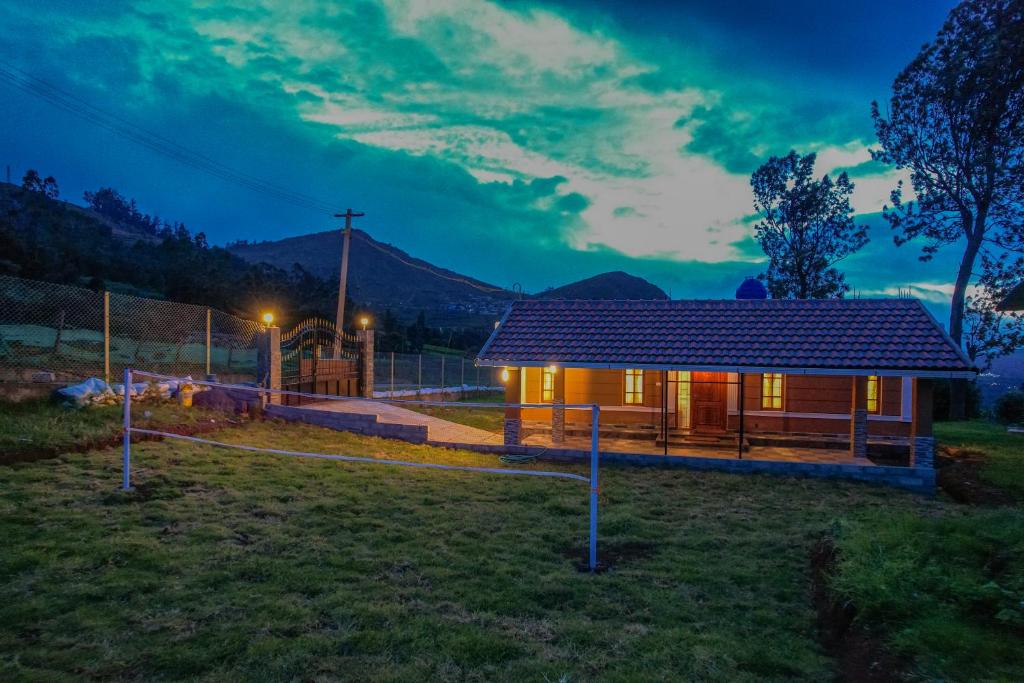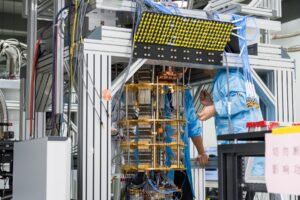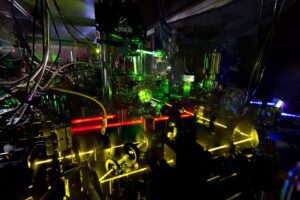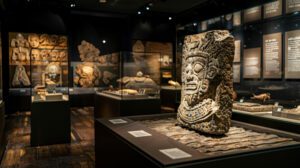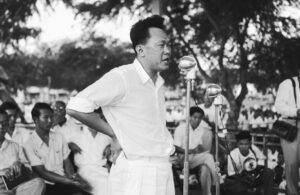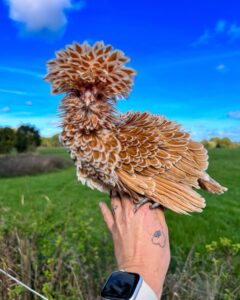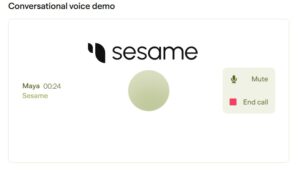 Pin
Pin Photo from Freepik
It’s a question that hits you when you’re alone at night or after watching a mind-bending movie: how am I conscious? Not just how brains work, but why you are aware—why there’s something it feels like to be you. You wake up, move through the world, and think thoughts. But no one can fully explain why or how that experience exists in the first place. You could’ve been born as someone else—or not at all. And yet, here you are, looking out from behind your eyes.
Philosophers have been puzzled by this for centuries. Neuroscientists can track brain activity and explain behavior, but the subjective “inner movie” of your life—the fact that you have a first-person point of view—is still a total enigma. The question of “how am I conscious” goes beyond science; it pokes at the very core of what it means to exist at all. It’s not just a brain puzzle. It’s personal.
Table of Contents
What If You Were in Another Body?
Let’s mess with your sense of self a bit. Say you woke up tomorrow in someone else’s body, with all your current memories, thoughts, and personality intact. Would it still feel like you? Most people would say yes—because what really makes “you” seem to be tied to your mind, not your body. This idea makes you wonder: maybe consciousness isn’t about your face, your voice, or even your DNA. Maybe it’s just the awareness behind it all.
But now flip it: what if you had someone else’s memories and thoughts but your own body? Would you still feel like you? Probably not. Which means your sense of “self” isn’t fixed in the flesh. That raises a wild thought: maybe consciousness could exist separate from the physical form, or maybe even transferable.
This kind of question shows how fragile and weird our identity really is. When you ask “how am I conscious,” you’re also asking: “Why am I this person, in this life, at this moment?”
The Brain’s Role—But Is It the Whole Story?
Ask a neuroscientist how you’re conscious, and you’ll get a technical breakdown: your brain has about 86 billion neurons firing in complex patterns, producing thoughts, emotions, and perceptions. Damage a part of it, and aspects of your personality or memory can vanish. So it’s clear the brain plays a major role. But here’s the weird part: no one has ever explained how brain activity turns into the feeling of being you. That gap is what philosophers call the “hard problem of consciousness.”
You can map out every signal, every electrical impulse in the brain, and still not explain why it feels like something to see blue or hear music. It’s like trying to explain color to someone who’s been blind their whole life. The mechanics are known—but the experience is something else. That’s why some scientists think consciousness might not be just a byproduct of the brain. Asking “how am I conscious” might mean we’re missing a whole part of the puzzle.
Consciousness as Fundamental—Not Just a Brain Output
Some theories flip the usual script and suggest that consciousness isn’t something the brain creates—it’s something the brain receives or filters. Think of your brain like a radio. The music isn’t coming from the radio—it’s coming through it. This view is called panpsychism or consciousness-as-primary, and it’s been gaining attention from both philosophers and scientists lately.
Under this model, consciousness might be a basic fabric of the universe, like gravity or time. Your brain is just the tool that focuses it into a personal experience. If that’s true, it changes the whole game. You’re not just a body that happened to become aware. You’re awareness, temporarily connected to a human body.
That would explain why asking “how am I conscious” feels so strange—it’s like asking how the ocean feels wet. You are it. This flips our understanding of life, death, and even reality itself. The mystery isn’t how consciousness starts, but how it gets shaped into “you.”
Why Are You You—And Not Someone Else?
It’s a weird question most people avoid: why are you experiencing this life, as you, and not as literally anyone else? It’s not just “how am I conscious,” but why this specific identity? Why these parents, this brain, this timeline? You didn’t choose it—at least not in any conscious way. Yet here you are, behind this particular set of eyes.
Statistically, there were billions of possibilities for who could be born, and you just happened to end up in this particular life. That randomness bugs people. It feels too coincidental to just accept. Some religious and spiritual views say your consciousness is reincarnated or chooses certain experiences to learn from. Others say it’s pure chance—a cosmic roll of the dice.
Whatever the case, it’s deeply personal. This isn’t some abstract science talk. This is your life. Your awareness. And you’re the only one who will ever know what it feels like to be you. That’s wild.
Could “You” Exist Without a Body?
Let’s push this deeper. If your body died today, would “you” still exist somehow? Not just in memories or impact—but as a conscious being? This is where science and spirituality split hard. Science says your thoughts and awareness are brain-based. Once the brain dies, consciousness ends. But spiritual traditions argue the opposite—that your body is just a temporary home, and your consciousness continues beyond it.
People who’ve had near-death experiences often report floating above their bodies, seeing everything, feeling peace, or even entering a tunnel of light. While skeptics say this is just brain chemistry at the point of death, others feel it’s proof that “you” aren’t the body at all.
If there’s even a sliver of truth to the idea that consciousness can exist without the brain, it completely reframes “how am I conscious.” It would mean you’re not just a mind in a machine—you might be a deeper essence using the machine for now. That’s not just fascinating. It’s life-changing.
The Simulation Hypothesis and Digital Consciousness
Here’s a curveball: what if your entire reality—including your consciousness—is part of a simulation? The Simulation Hypothesis suggests that if a civilization becomes advanced enough, it could create hyper-realistic simulated worlds. If that’s possible, there’s a chance we’re already in one. That makes the question “how am I conscious” even weirder. Are you just a very detailed character in an insanely complex game?
Some thinkers like Nick Bostrom argue that future beings might simulate the past—us—for fun or study. If consciousness can be simulated, then your awareness could be code running on an alien supercomputer. But even then—you feel real. You still have thoughts, fears, desires. You still ask questions.
Others believe digital consciousness might be possible in our own future. Could we one day upload minds and preserve “you” beyond death? If consciousness is more about patterns than biology, then maybe. It all raises the same haunting, fascinating question: what is this “I” that’s asking all this?
How Personal Experience Shapes Consciousness
Consciousness isn’t just a fixed thing—it’s shaped by everything you experience. Your memories, emotions, and thoughts build your unique perspective. The way you see the world now isn’t the same as when you were five or fifteen. It’s constantly evolving.
Because your consciousness is tied to your brain’s wiring and life story, even identical twins with almost the same DNA develop distinct personalities and awareness. Your identity is a mix of biology and experience. That’s why two people can look at the same event and have totally different feelings or interpretations.
So when you ask “how am I conscious,” part of the answer is that your consciousness is an ongoing story—written by every moment you live. It’s fluid, personal, and unpredictable. This makes you both stable and constantly changing. You are the author and the reader of your own inner world.
Dreams and Consciousness—Windows to the Mind?
Dreams are like mini-mysteries inside your larger mystery of consciousness. When you sleep, your brain doesn’t just shut off—it enters a different mode where strange images, emotions, and stories play out. Yet, in dreams, you often feel fully aware—sometimes even more aware than in waking life. This raises questions about what consciousness really is.
During dreams, your mind creates whole worlds without input from your senses. That means consciousness can exist without direct connection to the outside world. Some people believe dreams reveal hidden parts of the self or unconscious thoughts. Others see them as random brain activity with no deeper meaning.
But either way, dreams show how flexible and mysterious consciousness can be. If you can be “you” in a dream world that isn’t real, what does that say about what it means to be conscious right now? Dreams blur the line between reality and imagination and push the question “how am I conscious” even deeper.
Consciousness and Identity—Are They One and the Same?
Many people naturally link their consciousness with their identity. You think, feel, and experience life, so you feel like a unique “self.” But are consciousness and identity the same thing? Not exactly.
Consciousness is the raw experience—the awareness of thoughts, sensations, and emotions. Identity is the story you build around that experience: your memories, beliefs, and personality traits. You could imagine losing parts of your identity—like amnesia—but still be conscious.
This distinction matters when exploring “how am I conscious.” It shows that the core awareness might exist even without the personal narrative you call “me.” This challenges how tightly we tie our sense of self to our current body and mind.
So, your consciousness might be the stage, while your identity is the play performed on it. Both are essential, but they aren’t quite the same thing.
The Mystery of Self-Awareness—Knowing That You Know
One of the most fascinating parts of consciousness is self-awareness—the ability not just to experience, but to know that you’re experiencing. You don’t just see colors or feel emotions; you know you are doing it. This meta-awareness is what makes humans unique compared to most animals.
Self-awareness lets you reflect on your thoughts, question your existence, and wonder “how am I conscious.” It’s the foundation for introspection, creativity, and complex decision-making. Without it, you’d be like a robot, reacting to the world but never knowing you exist.
Scientists still debate how self-awareness arises in the brain, but it’s clear it’s tied to specific brain regions. This shows consciousness is layered—there’s basic awareness and then a higher-level awareness of being aware. This loop creates a rich inner life, making your experience deeply personal and endlessly fascinating.
Consciousness and Free Will—Are You Really in Control?
A huge question tied to consciousness is free will. If your thoughts and actions come from brain chemistry and past experiences, do you really choose anything? Or is your sense of making decisions just an illusion created by your conscious mind?
Many people feel they are the authors of their own story, making choices every day. But science shows that many decisions happen before we’re even aware of them. This challenges the idea that consciousness fully controls what we do.
Yet, consciousness still feels like the place where intentions form and plans take shape. Whether free will is real or not, your conscious awareness gives life meaning and responsibility. Asking “how am I conscious” often leads to “how much control do I have?” — and that question has no easy answers.
Why Understanding Consciousness Matters
You might wonder why digging into “how am I conscious” even matters. The truth is, understanding consciousness affects everything—from how we treat mental health to how we think about life and death. It shapes ethics, technology, and even how we relate to others.
If consciousness is more than just brain activity, it could mean life has deeper meaning. It might change how we view ourselves—not just as isolated bodies but as part of something bigger. This can inspire compassion and curiosity.
On the other hand, if consciousness is purely physical, it pushes science to explore how mind and matter connect. Either way, the search for answers impacts philosophy, medicine, AI development, and spirituality. It’s a quest that touches every human being.
Final Thoughts — The Everlasting Mystery of Consciousness
After all this, it’s clear that “how am I conscious” remains one of life’s biggest puzzles. No matter how much science advances or philosophy debates, the feeling of being you is a mystery that’s hard to pin down. Consciousness might be a brain process, a universal force, or something beyond our current understanding.
The fascinating part is that this question is deeply personal. It’s your awareness, your identity, and your existence wrapped into one. Exploring it doesn’t just change what you know—it changes how you see yourself and the world around you.
So keep questioning, keep wondering. The search for consciousness is not just about answers, but about embracing the mystery of being alive.
FAQs
Consciousness is the experience of being aware—of your thoughts, feelings, and surroundings. It’s what makes you you, allowing you to perceive and reflect on your existence.
This is debated. Some believe consciousness is tied to the brain, so it ends when the body dies. Others think consciousness might exist independently, as suggested by near-death experiences or spiritual beliefs.
Consciousness is your awareness and experience in the moment, while the soul is often seen as a spiritual, eternal essence. The two overlap in some beliefs but are not exactly the same concept.
Your sense of self is built from your unique memories, biology, and experiences. This personal identity creates the feeling that you are behind your thoughts, not anyone else.
Science explains brain activity linked to awareness, but it hasn’t solved the “hard problem” of why and how these processes create subjective experience. Consciousness remains a deep mystery.

